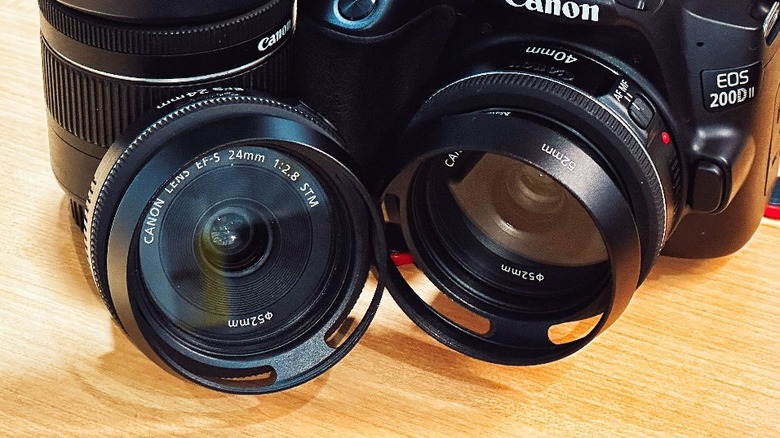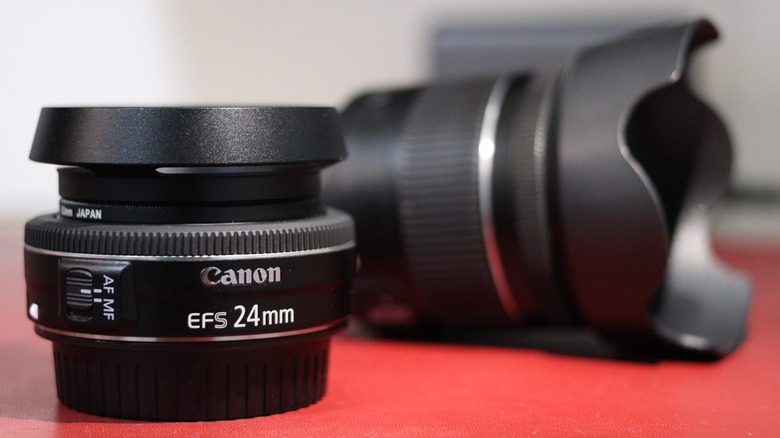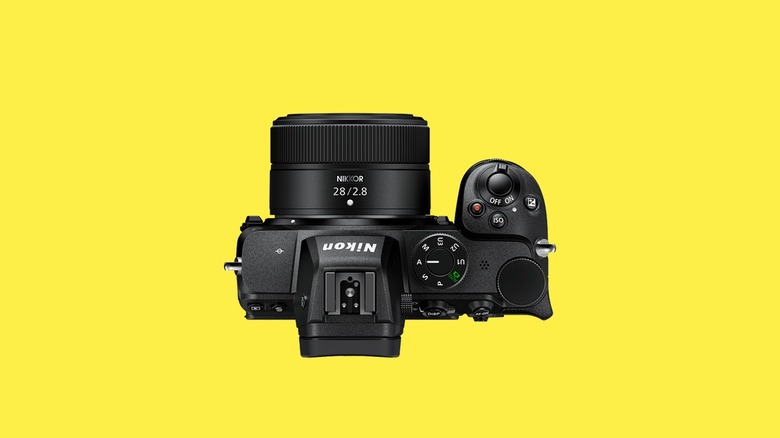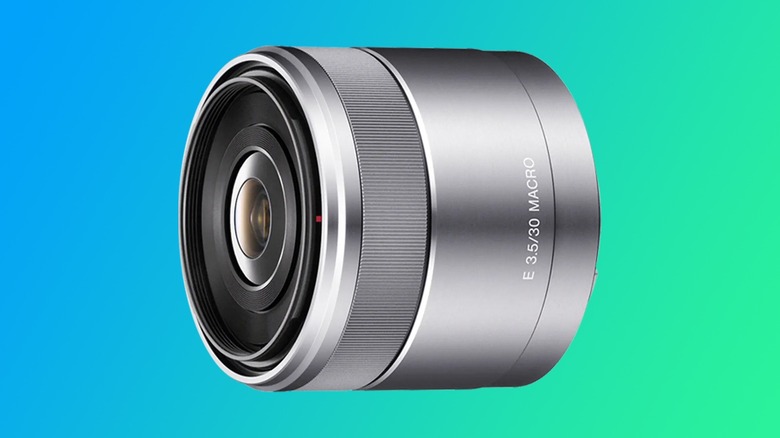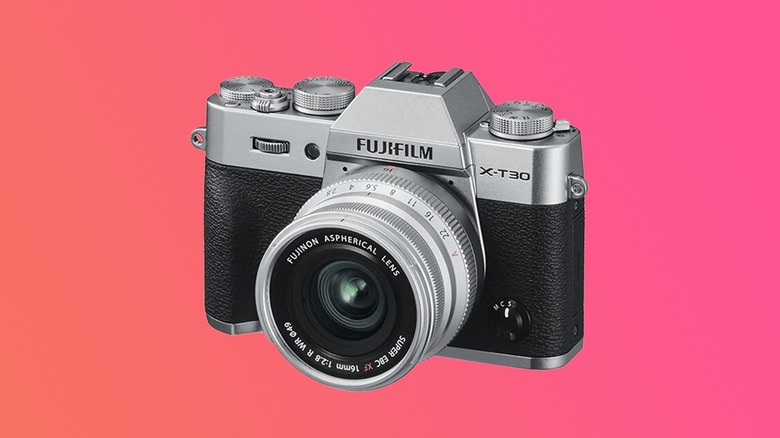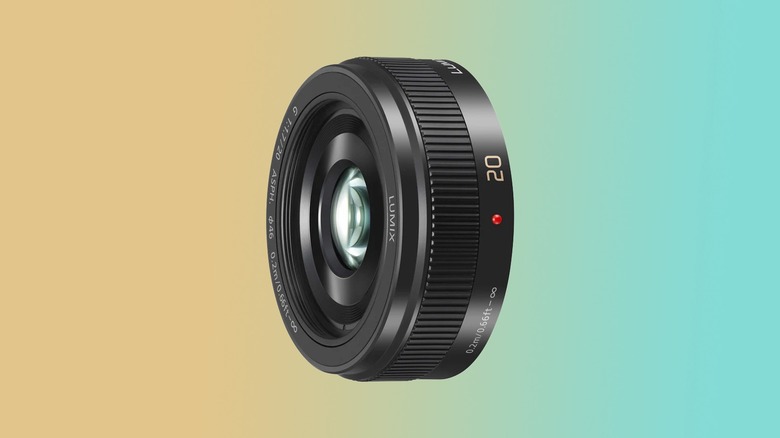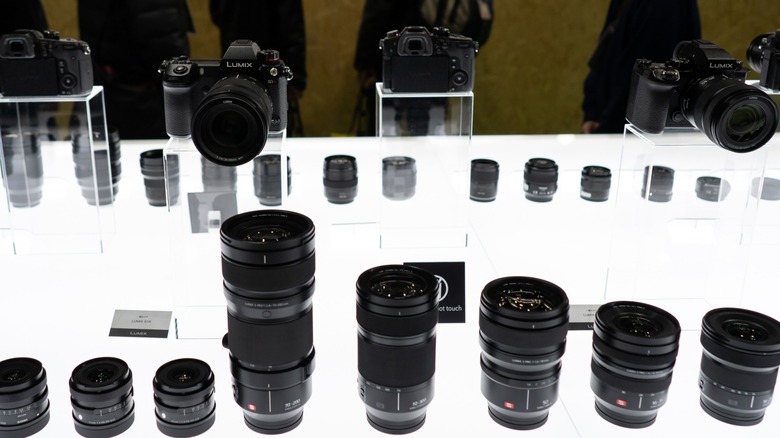5 Cheap Camera Lenses Every Budding Photographer Should Have
We may receive a commission on purchases made from links.
If you're a new photographer and have just bought your first camera, you might get advice to invest in a 50 mm as your first lens. On the other hand, some would say that you should make the most out of the kit lens before upgrading to more expensive glass. Both opinions are valid, it just depends on your budget and your preferred photography style on whether you should stick with what you have or get a nifty 50. However, you might be tempted to go for all the essential camera lenses every photographer should have if you have money to spend.
While we won't stop you from buying camera equipment you want, as it's a joy to use, not everyone can afford expensive lenses. So, if you're on a budget and want to try new lenses check out these relatively cheap lenses you can get to increase your creativity.
We're picking one lens each from some of the best major camera brands in the U.S,. so you at least have a pick no matter what camera you have. We're also sticking to lenses you can buy brand new, although we might mention other lenses we prefer, but are only available renewed or in the used market. Our methodology for selecting these lenses will be explained at the end.
Canon EF-S 24mm f/2.8 STM
The Canon EF 40mm f/2.8 STM lens as a great cheap lens for budding photographers. That's because its pancake design makes it great for street photography because of its portability and lightness. Furthermore, it's slightly larger focal length of 40 mm allows you to capture a wider scene if you have a full frame camera, while a cropped-sensor camera would give you a medium telephoto equivalent of 64 mm.
However, since this is no longer available new, you will have to settle for the Canon EF-S 24mm f/2.8 STM, which goes for $149 on Amazon. This lens is another pancake design, meaning its easy to carry around in the field. Furthermore, its wider focal length gives it an equivalent full frame focal length of 38.4 mm. While it's not as wide as the 35mm lenses popularly used in street photography, it's close enough to give you that feel in a cropped-sensor Canon camera.
Unfortunately, since it's an EF-S lens, you cannot use it on full frame Canon cameras, as its deeper mount physically does not allow the lens to attach to the body. But if you have a newer mirrorless APS-C Canon camera, like the Canon EOS R7 and the Canon EOS R10, you can use this lens on those cameras with an EF-EOS R Mount Adapter.
Nikon Nikkor Z 28mm f/2.8
If you have a Nikon mirrorless camera, we highly recommend the Nikon Nikkor Z 28mm f/2.8 lens. This lens is great for capturing a more expansive view when taking shots in the city. But if you have a cropped-frame camera, like the Nikon Z fc, this lens will deliver an equivalent 42mm focal length, making it a great lens for more traditional street photography.
It also has a relatively fast 2.8 aperture, which you'll greatly appreciate, especially if you're coming from a kit lens with only usually offers an opening of 3.5 or smaller. The Z 28mm is a bit more expensive than the Canon EF-S 24mm at $276.95. However, you can use it on both full frame and cropped-frame cameras, so you don't have to replace it if you plan to upgrade to a full frame camera in the future.
Unfortunately, if you only have an older Nikon DSLR, you cannot use the Nikkor Z 28mm, as you cannot buy a Z-to-FX-mount adapter. If that is the case, consider getting the Nikon AF S Nikkor 85mm f/1.8G lens. This lens is more suitable for portraits and costs more at $479.95. However, it will also produce astounding portrait photos with great bokeh that other lenses cannot recreate.
If you have a cropped-frame Nikon DSLR, this lens offers a 128mm-equivalent focal length, allowing to get much closer to your subject. Best of all, you can use this lens on a mirrorless camera with the Nikon FTZ II adapter, so you can keep on using it even after upgrading your camera body.
Sony E 30mm f/3.5 APS-C Standard Macro
Macro lenses will unlock a new dimension in your creativity, especially as it allows you to get up close and personal to the level that we cannot see with our naked eye. So, if you have a Sony camera and want to try this type of photography, you should go for the Sony E 30mm f/3.5 Macro lens.
This lens is one of the more affordable options from Sony at just $298. And while it's only designed for APS-C Sony cameras, you can still use it with full-frame Sony E-mount cameras in crop mode. Thie crop mode in Sony's cameras give them more flexibility, as you can upgrade to full frame cameras without making all your APS-C lenses unusable.
The Sony E 30mm doesn't have a fast aperture at just f/3.5, but it more than makes up for it with its macro capabilities. Some photographers also prefer macro lenses with longer apertures like 60 or 100mm to give them more distance from the subject and avoid the lens hood or its front elements to interfere with lighting. However, the wider 30mm focal length of this lens means you can also use it for more mundane subjects, giving the lens better flexibility than telephoto lenses which require faster openings if you want to shoot handheld.
Fujifilm XF 16mm f/2.8 R WR
Fujifilm cameras are a top pick if you want to shoot film but don't want to spend money on rolls of film and film development. They even have a great line up of Fujifilm X cameras that caters to the taste of every photographer. So, if you bought a Fujifilm X camera kit and want to upgrade the glass that you have, consider the Fujifilm XF 16mm f/2.8 R WR.
This lens offers a 24mm-equivalent view when compared to 35mm film cameras, making it the widest lens we've recommended so far. This makes it great for capturing expansive views and landscapes, something that Fujifilm cameras excel at, especially with its amazing selection of film simulations.
Although this lens is a bit expensive compared to our other recommendations at $399, you won't get much wider at this price point. It's also a pretty small lens compared to other wide angle prime lenses from other brands. So, if you pair it with a relatively compact camera like the Fujifilm X-E4, you'll get a lot of camera capability for not a lot of weight.
Lumix G Series 20mm f/1.7 ASPH
The Lumix G Series 20mm f/1.7 lens is one of the fastest lenses you can get for less than $500. It's listed on Amazon for $299.99 and comes with a fast f/1.7 aperture. In fact, it's the fastest lens on this list, so if you're a Lumix G camera user, we highly recommend that you get this lens.
Since Lumix uses a Micro Four-Thirds sensor, that means its cameras has a 2x crop factor, giving the 20mm f/1.7 lens and 40mm-equivalent focal length when compared to 35mm film cameras. This 40mm length makes it a great all-around lens—you can use it to shoot medium-wide scenes and for taking portraits without much lens distortion.
Another advantage this lens offers is its small pancake design, making it a great lens if you want to be discreet — an important camera characteristic if you want to try your hand at street photography. So, if you pair this lens with a small camera like the Lumix GM1, you get an excellent photographic system that will not weigh you down.
Why Did We Pick These Lenses?
There are many inexpensive lenses that we can recommend, but we avoided picking ones that most people already use or suggest, like the 50mm lens or the kit lenses. We also stuck to a budget that's less than $500, so these picks should be accessible to more photographers.
Since we cannot guarantee that quality of used lenses, we kept our recommendations to brand-new lenses only. Of all the lenses listed above, I personally own the Canon EF-S 24mm f/2.8 STM and the Canon EF 40mm f/2.8 STM. As for the rest of the lenses, we recommended them based on price, expert reviews, form factor, and compatibility with newer camera systems.
